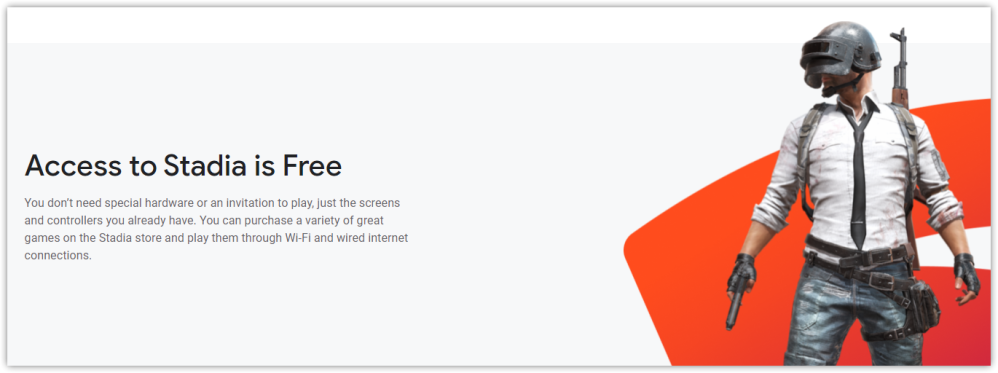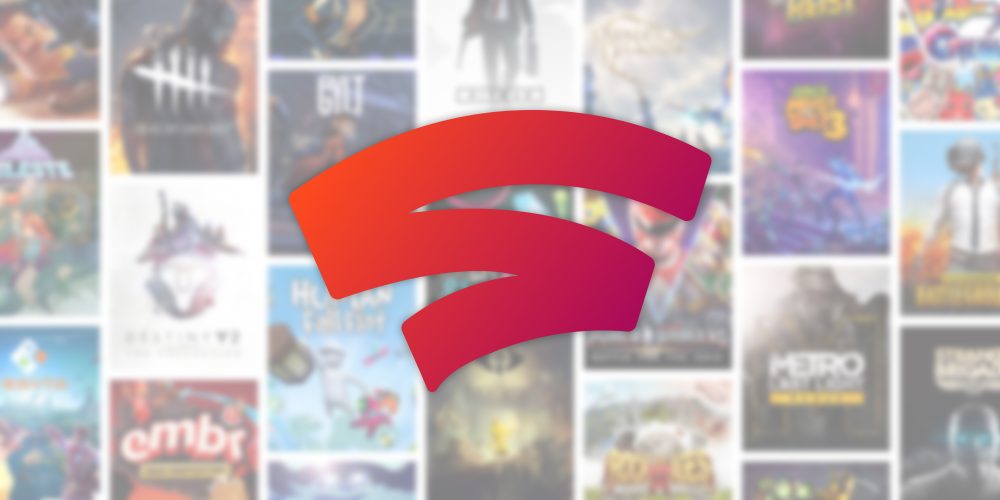It’s been a year since Google Stadia was first made available to the public, and in that time, the service has proven itself to many despite still having some issues. While cloud streaming still has challenges to overcome, Stadia has proven itself as something that can change the way people play games for the better. In the past year, though, many myths and misconceptions about Stadia have run rampant. Here’s why a lot of what you’ve heard about Stadia is wrong.
Myth: You have to pay monthly to use Stadia
This is by far the biggest myth about Stadia — that it’s expensive and you have to pay monthly on top of the cost of games. Really, nothing could be further from the truth.
In reality, here’s how Google Stadia’s pricing actually works. The platform itself — the apps, streaming tech, etc — is completely free. Just buy your game and you can use the free console in the cloud with no limits on hours and no waiting in line. Plus, online multiplayer isn’t tied to a subscription like it is on other consoles.
Alternatively, there’s Stadia Pro. The $9.99 monthly subscription opens up additional features such as 4K HDR streams, 5.1 Surround Sound, and most importantly, a collection of redeemable games you can play with no additional cost as long as your subscription continues. On average, 4-5 games are added to Pro each month and as long as your subscription is active, those games remain in your library. They won’t rotate out and if you leave Pro and then come back, the games are ready right where you left off. This subscription is by no means required, but it’s easily the best way to experience Stadia.

The real “myth busted” status for this widespread misconception is that Destiny 2 is now completely free to play on Stadia. No subscription, no game purchase, and no hardware required. Just grab the laptop or smartphone you already own and go for it. Plus, more free-to-play games are coming.
Myth: Stadia is going to be shut down
Stadia is a long-term play. Could it shut down eventually? Yeah, absolutely. But every new project or business comes with that risk! Should Stadia prove monumentally unsuccessful years from now, Google might have to make a tough call, but if they ever come to that, the odds are in the player’s favor that Google would make up for it with refunds or even a replacement product.
There are some important things to note, though. For one, Google is currently offering incentives to developers to bring games to Stadia, and the company is especially looking for titles to help bring to the public in 2023 and beyond. While three years isn’t exactly a long time, it also shows Google is looking to the future. Also this week, an unfortunate ransomware leak from Capcom hit the web, divulging, among other things, that Google had apparently paid millions of dollars to bring Resident Evil 7 and Resident Evil 8 to Stadia. While Google is an absolutely massive company with absurd amounts of money, that’s still an amount of cash that’s nothing to scoff at for two games.
Look, I can’t say that Stadia will stick around forever and that you can sit down with confidence that the platform will exist for the rest of time. But what I can say is that, in most cases, when Google does pull the plug on a product it’s either because 1) they have something “better” to replace it with or 2) they’ve given it a fair chance and killed it off because it proved unsuccessful (RIP Google+).
Myth: Stadia has ‘horrendous’ input lag
Alright, let’s talk lag. Since Stadia’s announcement, people have made cracks about latency and lag and how streaming from the cloud will never be as good as a local machine. Yes, there is latency added by streaming, but as the vast majority of people who actually try Stadia on it’s recommended connection strength will tell you, latency is basically indistinguishable from a local machine. Input lag is a non-issue on Stadia — in fact, it’s a bit of a miracle.
While we’re at it, let’s talk about this cursed GIF. This clip from the Washington Post has been floating around the internet for a year, “proof” that Stadia has horrid input lag.

What the GIF doesn’t tell you is that Stadia was being played at a corporate office on an Enterprise network, something Google explicitly said Stadia was not suited for at the time because the congested network would be adding latency to the stream. It’s a horrid example of Stadia’s performance and not at all a picture of what the vast majority of the platform’s customers will experience. Don’t believe me? Go sign up for the free trial (or “buy” Crayta for zero cost) and try it for yourself! I highly doubt you’ll see the same results as this awful example.
Myth: You have to pay full price for every game on Stadia
This is one of the most prevalent misconceptions I’ve seen about Stadia, and also one that’s easy to explain. Yes, on Stadia you’ll often pay the full price for a game, but it’s the same price you’d pay for the digital version of a game on any other platform. Sure, the argument can be made that physical games are often more affordable, but in recent years countless gamers have been making the switch to digital-only games, and console makers are pushing that harder with more affordable consoles that lack the disc drive.
But, beyond that, some also argue Stadia doesn’t put games on sale. While we’ve yet to see a sale on the scale of something like what Steam occasionally does, Stadia does have regular sales. Each week there’s a new set of discounts and then some random sales on top of that, often matching other platforms. Notably, Borderlands 3 is currently massively discounted to $20, a sale no other platform is seeing. Plus, that $20 price is lower than Steam has ever seen before. Stadia Pro subscribers also get access to bigger sales that can sometimes take up to 80% off of a game’s price, and you retain those games even if you drop the Pro subscription!

Myth: You don’t own your games on Stadia
By the nature of cloud streaming, people automatically assume that you don’t “own” your games on Stadia. Here’s why.
On Stadia, your purchase of a game is a license to play that game on Stadia. You can compare that to buying a game on Steam or a digital purchase on PlayStation or Xbox. The only difference is that you’re not actively downloading the game using that license. For the average person, there’s absolutely no difference in terms of ownership between buying a game from Stadia versus Steam, PlayStation, or Xbox — at least when you’re buying the digital versions. Plus, game stores do eventually shut down. The Wii Shop died in 2019, 13 years after the console launched, as just one example.
By contrast, really, Stadia is the only true cloud gaming platform where you have any sense of ownership over your games. On Xbox Game Pass, a title could leave the subscription service at any time, leaving you without any access if you don’t own a console to play it on. On Amazon Luna, you also can’t purchase your games. If you stop the subscription, the game is gone.
Myth: Stadia Pro isn’t worth it — there aren’t enough games
When comparing cloud services, Google Stadia may seem not so great when you look at the fact that Stadia Pro only offers a few games each month, a far cry from the dozens or hundreds that Luna and Game Pass bring to the table. While the “all you can eat” Netflix model is what many people want, it’s not really all that far off from what you get with Stadia Pro.

As of November 2020, Google is currently offering more than 30 games for free as a part of the Stadia Pro subscription, and all of those titles are added to your library permanently as long as you remain a subscriber. Some games will join in December and some games will leave, but what’s important to talk about here is the total number of games that have been offered to date.
If you signed up for Stadia Pro back at launch, November 2019, you have been able to redeem more than 50 games in the past year, nearly half of Stadia’s entire library. That list has included massive titles like Destiny 2: The Collection, PUBG, SuperHot, Sniper Elite 4, and the Tomb Raider collection too! It’s a really hard value to argue against if you ask me, especially because those games remain in your library as long as the subscription sticks around.
More on Google Stadia:
FTC: We use income earning auto affiliate links. More.



